Are you tired of the usual coffee jitters but still crave an energy kick? Look no further!
We’ve curated a list of the 10 most invigorating coffee alternatives that promise to elevate your energy levels without a drop of tea in sight.
Each option offers a distinct flavor and unique benefits, ensuring you find the perfect match for your taste and lifestyle. Whether you’re seeking something earthy, nutty, or even creamy, these alternatives have got you covered.
Say goodbye to caffeine crashes and hello to sustained energy!
1. Mushroom Coffee Blends
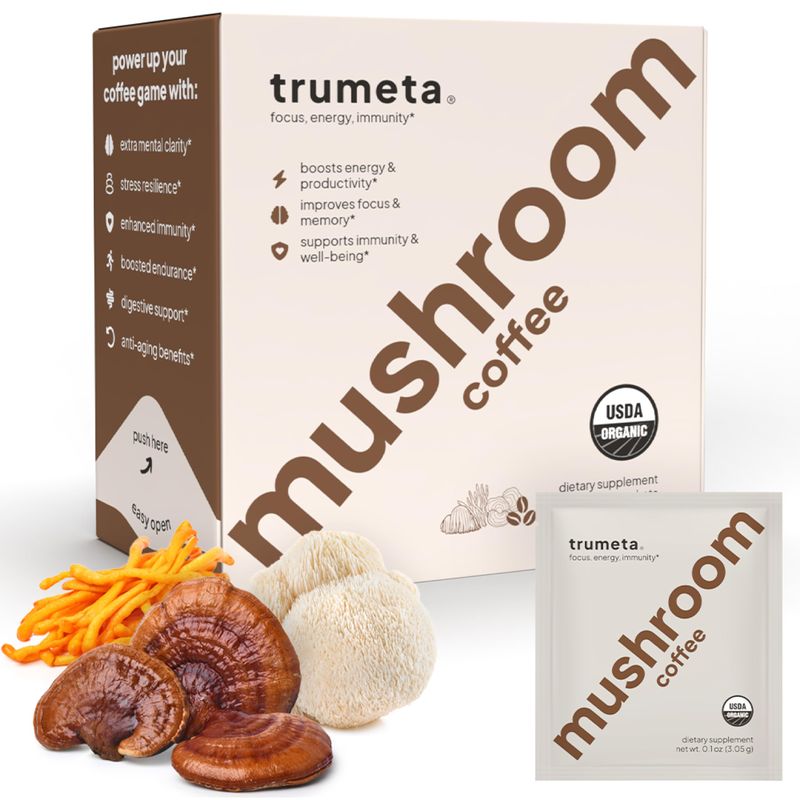
Mushroom coffee blends might sound like something straight out of a fairy tale, yet their benefits are as real as they come. These blends typically include medicinal mushrooms such as Chaga, Lion’s Mane, and Cordyceps, known for their immune-boosting and cognitive-enhancing properties.
Imagine sipping on a brew that not only awakens your senses but also sharpens your mind, all without the jittery side effects of regular coffee.
The earthy tones of mushroom coffee make it a comforting choice, with a subtle flavor that complements any morning routine. Plus, it’s a delightful conversation starter!
Fun fact: Mushrooms have been used in traditional medicine for centuries, celebrated for their healing powers. It’s like a sip of ancient wisdom in every cup. Search this one up, and you might find yourself a new morning ritual!
2. Yerba Mate
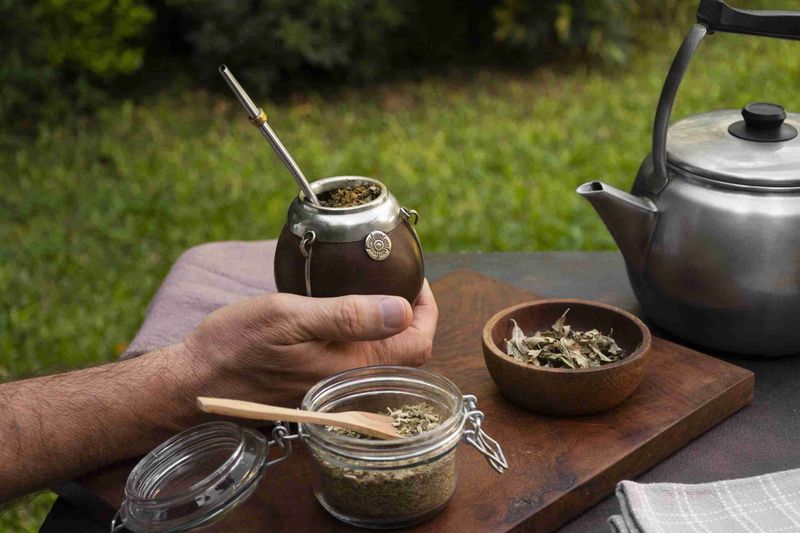
Yerba mate is more than just a drink in South America—it’s a cultural staple akin to coffee in the North. Known for its balanced caffeine content, it provides a smooth, non-jittery energy boost. When you take a sip, you’re engaging in a ritual that connects you to nature and centuries of tradition.
The drink’s grassy, slightly bitter flavor is an acquired taste, but many find it uniquely refreshing. It’s also packed with antioxidants and essential nutrients that promote overall well-being.
Did you know? Yerba mate is often shared among friends and family as a symbol of hospitality. It’s not just a beverage; it’s an experience that fosters connection. So next time you’re looking for a coffee alternative, why not try a sip of social harmony?
3. Chicory Root Coffee
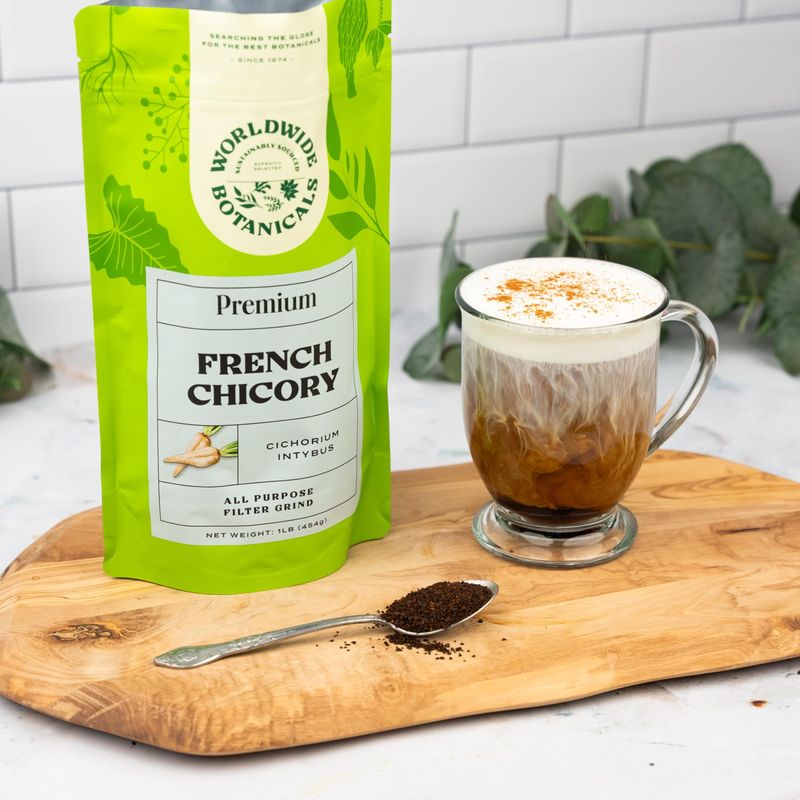
Chicory root coffee is a caffeine-free alternative that’s been enjoyed since the 1800s. Originally popularized during coffee shortages, it remains beloved for its robust, nutty flavor that closely mimics coffee itself.
Imagine starting your day with a rich cup of chicory that warms your soul without the caffeine kick.
The secret lies in roasting the chicory root until it’s dark and aromatic. It’s a brew that has stood the test of time, offering a taste of history in every sip.
Chicory is also rich in inulin, a prebiotic fiber that supports gut health. Who knew that skipping the coffee could lead to a happier tummy? This alternative is perfect for those who love the ritual of coffee but seek a gentler experience.
4. Golden Milk Latte
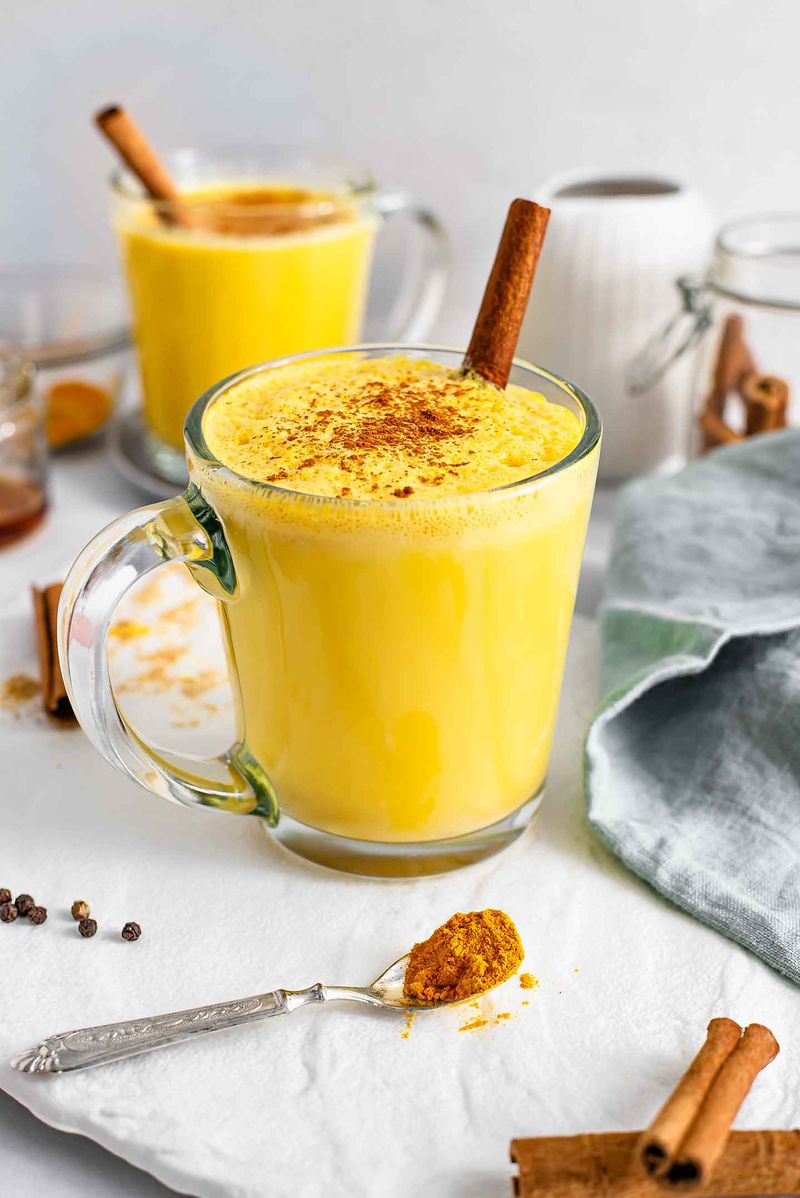
Golden milk lattes, also known as turmeric lattes, blend the vibrant spice of turmeric with creamy milk for a soothing drink that delights the senses. This ancient Ayurvedic beverage is celebrated for its anti-inflammatory properties, thanks to curcumin, turmeric’s active compound.
The drink’s golden hue is as captivating as its health benefits, making it an Instagram-worthy addition to your morning or evening routine. The warm spices, often including ginger and cinnamon, create a comforting flavor profile that feels like a hug in a mug.
Did you know? Turmeric has been used in traditional medicine for thousands of years, credited for boosting immunity and aiding digestion. With every sip, you’re indulging in a centuries-old health practice that feels both indulgent and rejuvenating.
5. Maca Root Powder
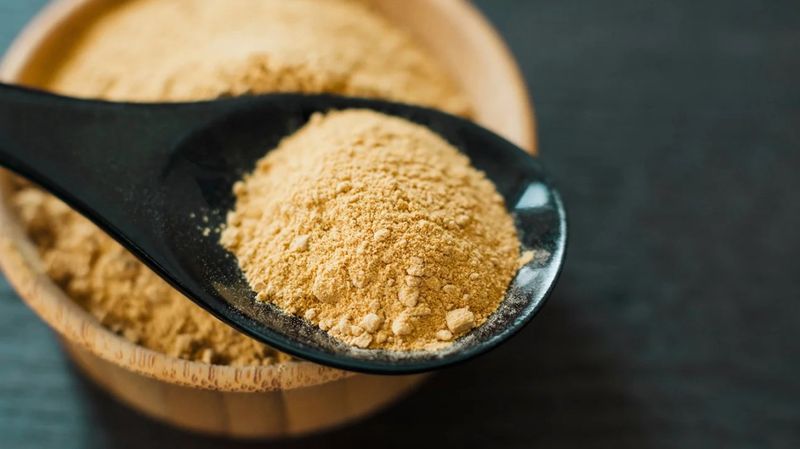
Maca root powder, hailing from the high Andes of Peru, is a superfood with a storied past. Renowned for its ability to naturally enhance energy and stamina, maca root has been a staple in Andean diets for centuries.
Its nutty, slightly sweet flavor complements a variety of drinks, making it a versatile addition to your pantry. Plus, it’s packed with vitamins, minerals, and amino acids that support overall health.
Fun fact: Maca was so valued by the Incas that it was used as currency during the height of their empire. With maca root, you’re not just boosting energy; you’re connecting with ancient power! This root is your ticket to natural energy, the Peruvian way.
6. Dandelion Root Coffee
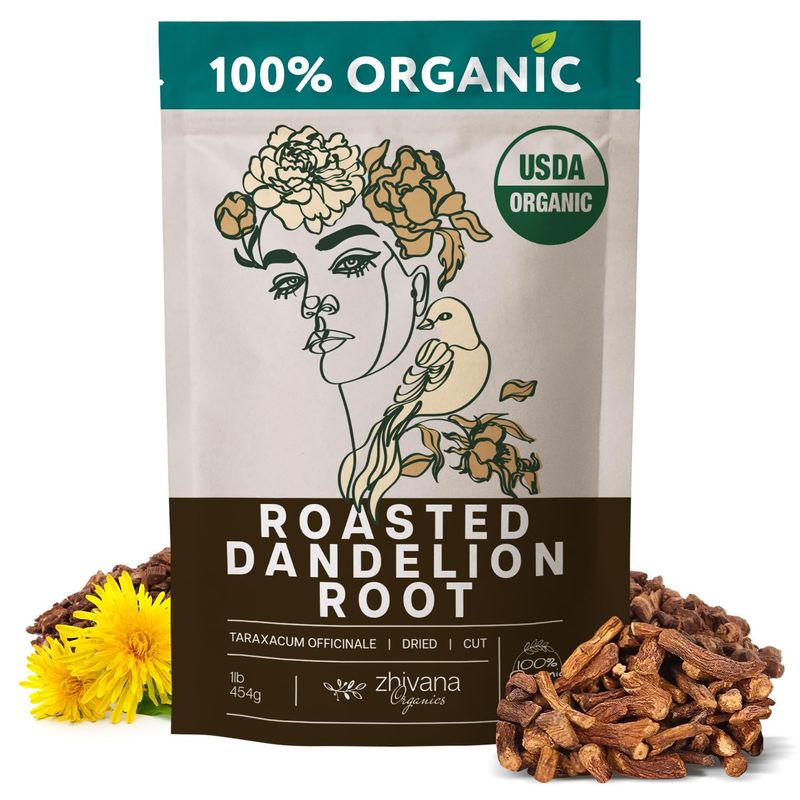
Dandelion root coffee transforms a humble garden weed into a robust, coffee-like beverage that surprises many with its depth of flavor. It offers a rich, dark brew that can easily fool a coffee lover, minus the caffeine buzz.
The brew has a slightly bitter, earthy taste, reminiscent of traditional coffee, and it’s packed with vitamins A, C, and D, along with minerals like iron and zinc. This concoction supports liver health and aids digestion, turning every sip into a mini wellness boost.
In folklore, dandelions symbolize resilience and growth, making this drink a fitting choice for those seeking strength from nature. Why not enjoy a cup of perseverance and health with your next breakfast?
7. Rooibos Espresso
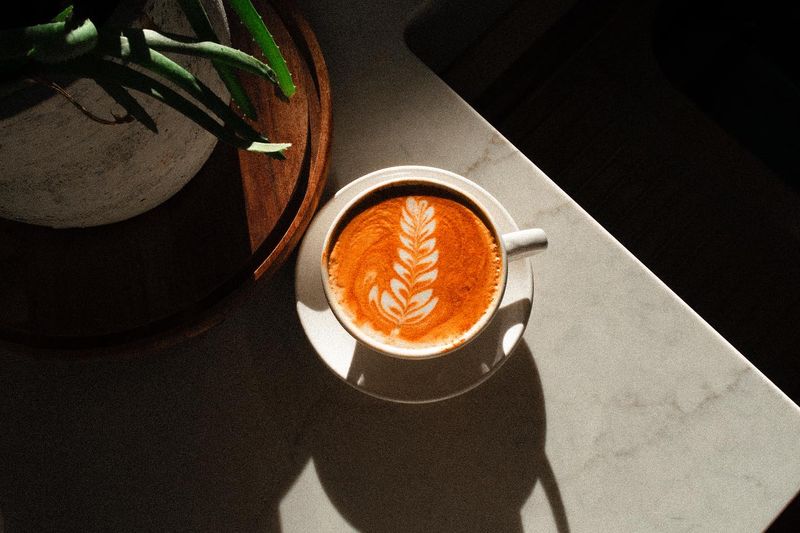
Rooibos espresso offers a caffeine-free alternative to traditional espresso, with a distinct red hue and a naturally sweet, nutty flavor. This South African plant is not just a delightful beverage; it’s a powerhouse of antioxidants and minerals.
Imagine savoring a shot of rooibos espresso and feeling the warmth spread through you, much like its caffeinated counterpart. The smooth, full-bodied flavor satisfies a coffee craving without the jitters.
Fun tidbit: Rooibos is also known as “red bush,” and has been a staple in South African diets for generations. It’s perfect for those who adore espresso’s richness but prefer a gentler, caffeine-free option. Sip on rooibos for a touch of heritage in your cup.
8. Carob Powder Drink
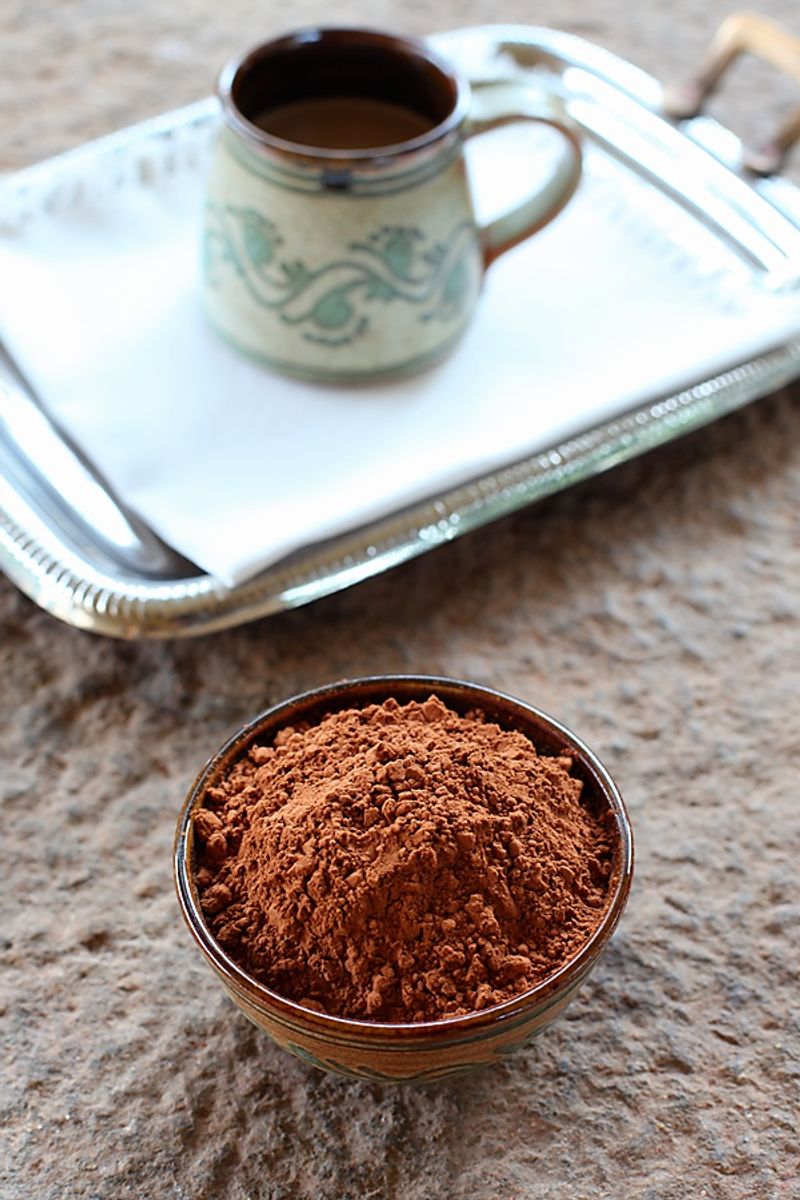
Carob powder, derived from the carob tree’s pod, offers a sweet, chocolate-like flavor without any caffeine. Often used as a chocolate substitute, it makes for a deliciously creamy drink that satisfies a sweet tooth while providing a gentle energy lift.
Rich in fiber and antioxidants, carob supports healthy digestion and adds nutritional value to your diet. It’s a delightful way to enjoy a chocolatey treat without the caffeine.
Fun fact: Carob was traditionally eaten by ancient Greeks as a sweet treat, and its seeds were even used to measure the weight of gold, coining the term ‘carat.’ Try carob for a touch of sweetness and a sip of history.
9. Kombucha
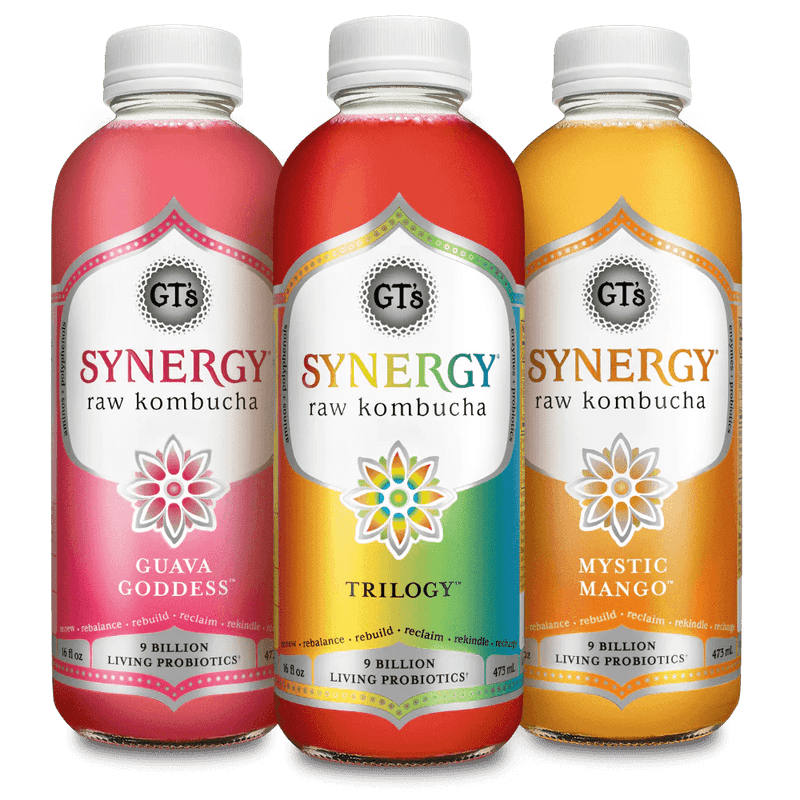
Kombucha is not your average brew; it’s a fermented tea that’s taken the wellness world by storm. Known for its probiotic content, kombucha supports gut health while providing a mild energy boost through its natural fermentation process.
The tangy, effervescent drink is both refreshing and invigorating, offering a unique flavor that’s slightly sweet with a hint of tartness. It’s a perfect choice for those looking to explore beyond traditional beverages.
Did you know? Kombucha has been around for over 2,000 years, believed to have originated in Northeast China. With each sip, you’re not just enjoying a drink; you’re partaking in a historical elixir that continues to captivate modern palates.
10. Coconut Water
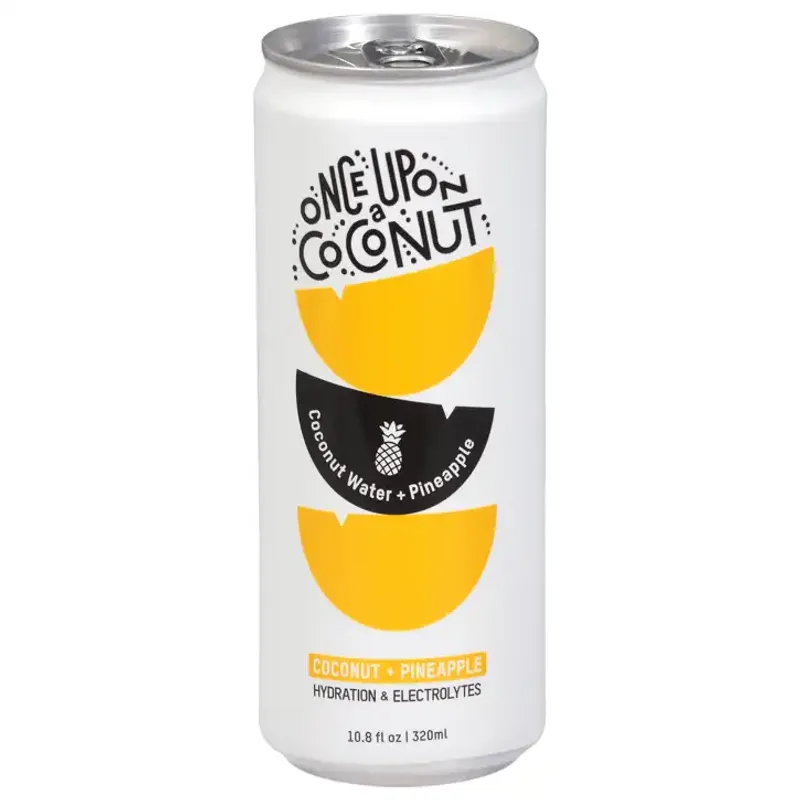
Coconut water is nature’s refreshment, boasting electrolytes that hydrate better than any sports drink. Crack open a coconut, and you’re instantly transported to a tropical paradise, sipping on a natural electrolyte-rich beverage that’s perfect for recharging your body’s energy.
The subtly sweet and nutty flavor makes it an enjoyable drink on its own or as a base for smoothies. It’s like a vacation in a glass, offering both replenishment and relaxation.
Fun fact: In World War II, coconut water was used as an emergency blood plasma substitute due to its sterile nature and similar electrolyte balance. Whether post-workout or as an afternoon pick-me-up, coconut water is a hydrating powerhouse.
Leave a comment